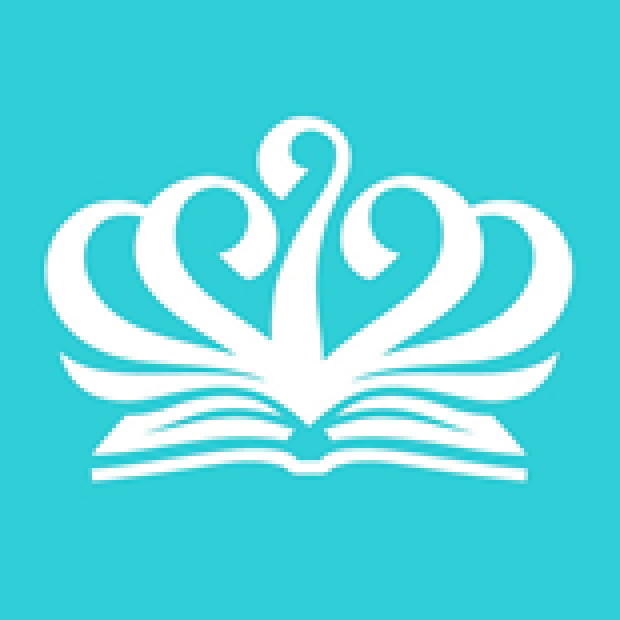Our Sixth Form students were really interested by her experiences and eagerly posed thoughtful questions throughout her visit.
After her presentation, I met Elbina and asked her a few more questions to understand exactly how she became successful in her field, and if she had any tips for our students as they embark on their A-Level examinations and move on to higher education. Here’s what Elbina had to say:
You graduated from our school in 2018 to study Biology at the University of St Andrews. How were your sure that this was the path you wanted to take?
I always knew that I wanted to study Biology at university because I was very interested in the subject at school and very passionate about it. I knew that St Andrews had cutting edge and novel research, and I wanted to learn from some of the best in the field, so this was always my plan through GCSEs and A-Levels. I’m really glad that I made it!
My university course was a 5 year degree, which included 3 years at Bachelor level, 1 year as a placement in industry, and a final year studying a Master’s degree. I was actually able to skip the first year, as I was told that it was at a similar level to A-Level qualifications, which I had just finished at ISM. So I finished the full Bachelor’s and Master’s degrees in just 4 years, and a few months later I started my PhD at the University of St Andrews’ School of Medicine.
How was the experience moving from Russia to the UK and joining the university?
My family live in Rosinka which is where I grew up, and the international community in this small compound is its own little bubble. I would say a similar thing about St Andrews; It’s a small village in Scotland, but with the university there, the people you meet are from all around the world. The university is spread throughout the town so you don’t feel like you’re just in a small bubble. Students make up around half of the population, and it is very much a student-friendly town.
I did visit the UK before, when I was younger, so I felt confident moving there. Nevertheless, it was a bit of a jump to go from Moscow City Centre to a small town in Scotland, where everything is within walking distance. But I didn’t mind that at all, I found it had a certain charm that I was immediately warmed to.
How did your experiences at the International School of Moscow contribute to your academic and personal growth?
I think growing up at ISM with a mixed group of students from all over the world and learning about their cultures, traditions and experiences, really prepared me to think outside the box a little bit, in terms of what I could do after I graduated, where I could go to study, and who I could be in my life. ISM has a really supportive community where all the teachers want you to achieve and do well, and overall that was a great experience and really helped me get where I am today.
What challenges have you encountered since you began your university studies, and how do you think your experiences at ISM prepared you to overcome these challenges?
The main challenge when I started my undergraduate degree was learning how a university expects me to study. At GCSE and A-Level, students have set curriculums, set programmes, and globally-standardised exams, while at university it is a bit different. Every lecturer and professor has their own way of teaching, their own way of setting exams and doing things. At ISM, I was taught to problem-solve, do my own research and ask questions, and this definitely helped me overcome this initial challenge when I started my degree.
Learning at ISM always motivated me to work hard and study well for my subjects, and achieve the best possible results. I’ve found that this mindset has stuck with me during my university time. I knew that it was my own responsibility to study hard and get a distinction or good grades in my degree, and I had the mindset from my time at ISM that helped me put the effort in to do exactly this.
This summer will be 6 years since you graduated from ISM. What do you remember most from your time here as a student?
I remember Sixth Form really well, especially being with my friends in the common room. In my year, we had quite small groups in our classes, and I developed great relationships with my peers and the teachers at the time. Some of those teachers are still working at ISM today! I really enjoyed the atmosphere of my Sixth Form days, where we were all focussed on achieving our best A-Level results but we could still enjoy the last of our school days without thinking of all the responsibilities that come as an adult.
Looking back, what advice would you give to current ISM student who aspires to follow in your footsteps pursue a Ph.D. or continue their education at an advanced level?
In terms of academics, I would advise the students to be as prepared as possible for their studies, and understand that it is their responsibility, and they are in charge of their own future. If you want to study for a PhD in your future, work backwards and see what things you need to achieve so that once you are at the stage of applying, it doesn’t seem as daunting or scary. In terms of personal life, I advise the students to get involved in university life outside of the degree as much as possible; join societies and social clubs, volunteer, do different activities, meet different people and do lots of different things because even though you might not like everything, that’s the best way to make new friends and feel happy.









